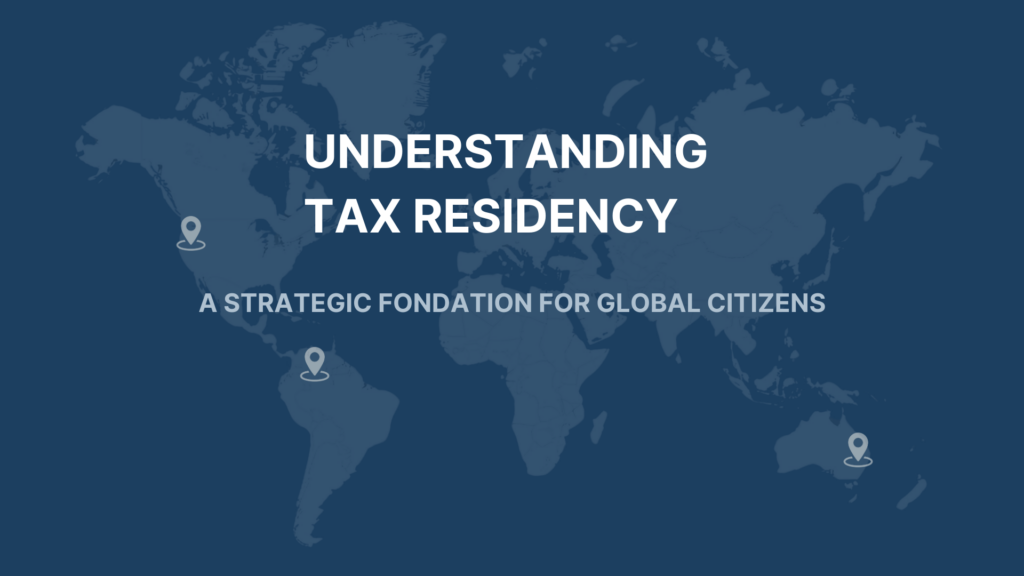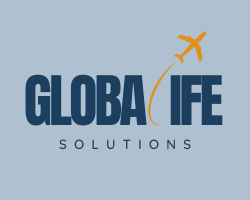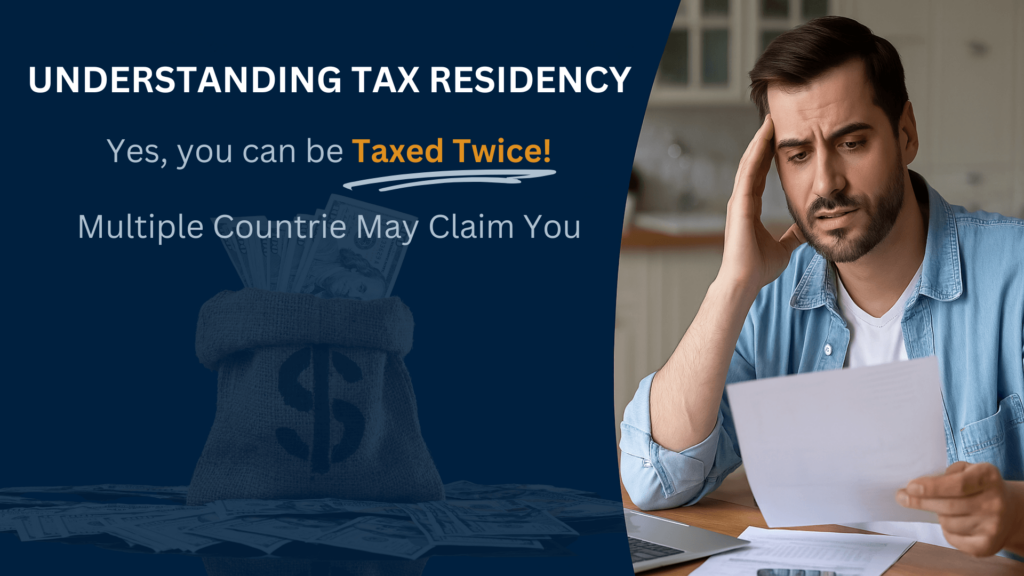The strategic imperative for the location-independent professional
Choosing a location-independent lifestyle offers unprecedented freedom, but with that freedom comes complexity, especially in matters of tax residency. As a global professional, tax residency isn’t just a bureaucratic formality, it’s a financial and legal cornerstone that can significantly impact your wealth, economic stability, and overall peace of mind. Let’s explore how the concept of tax residency has evolved, what it means today, and how you can turn it into a strategic advantage.
Personal tax residency and corporate tax residency are two fundamental yet distinct concepts in international taxation, making it crucial to understand their differences for anyone leading a location-independent lifestyle or operating a business across borders. This article will focus solely on personal tax residency, and corporate tax residency will be discussed in a separate
Historical foundations: from simplicity to complexity
In the past, tax residency was a simple matter of presence. Most countries applied a “183-day rule”—if you spent more than half the year within their borders, you were considered a resident for tax purposes. This model was effective in an era when people worked in one place and had clearly defined ties to a single country.
A changing world: How mobility challenged tax norms
With the increasing speed of globalization, governments have broadened their definitions of tax residency, rendering the traditional concept outdated. Let’s explore the current principles governing tax residency.
- Center of vital interests: Authorities begin by examining where you maintain a permanent home, where your immediate family resides, and where your financial interests and social connections are the most substantial.
- Citizenship-based taxation: Some countries, notably the United States, impose tax obligations on citizens regardless of their place of residence.
- Economic substance over form: Increasingly, authorities look at where your income is generated, managed, and spent, even if you’re constantly on the move. Many rules have been introduced to define and regulate these factors.
Example: A digital nomad rotating between hubs may not meet the 183-day threshold in any one location, yet they can still be classified as a tax resident based on their ties or various other criteria established by a country’s tax authorities and regulations.
Without a clear plan, you may unintentionally trigger tax obligations in multiple jurisdictions, exposing yourself to double taxation, fines, or audit risk.
The modern landscape: complexity meets opportunity
In today’s environment, working remotely is becoming more common with globalization integrated into our routine experiences. Tax residency has become a more complex and multifaceted concept. Global remote workers can no longer avoid tax liability by staying for less than 183 days in a single country. They must establish a framework that supports their lifestyle, goals and business operations, while mitigating the inherent risks of tax compliance issues.
- Dual or multiple residencies: An individual may be recognized as a tax resident in several countries, presenting both challenges and opportunities for planning.
- Evolving legal standards: Tax laws are subject to regular shifts in response to global events, political changes, and international cooperation agreements such as CRS and FATCA reporting.
- Compliance vs. flexibility: The freedom to roam comes with the responsibility to plan. Navigating this trade-off wisely is crucial.
Establishing a tax residency in a jurisdiction offering favorable fiscal treatment can optimize your global tax position. However, if you do not align your ties and legal substance accordingly, you risk triggering dual residency claims or violating international reporting obligations.
The multi-hub strategy: Using tax residency to your advantage
Enter the multi-hub lifestyle, a model that leverages geographic flexibility to optimize tax benefits. When executed thoughtfully, it enables professionals to strike a balance between quality of life, legal compliance, and fiscal efficiency.
- Jurisdictional diversification: Establishing ties in low or no-tax jurisdictions can reduce overall tax exposure, especially when combined with the proper legal structures, such as territorial tax systems, foreign earned income exclusions, or non-domicile regimes.
- Lifestyle and legal alignment: Choosing hubs that support both your lifestyle, and your business activities ensure consistency in residency claims.
- Asset protection and long-term planning: A multi-hub model can support retirement planning, wealth preservation, and family structuring in tax-efficient ways.
Example: A Hublifer who splits his time between a high-tax EU country and a low-tax Southeast Asian jurisdiction can benefit from reduced taxation, lifestyle cost savings, and easier reinvestment in business ventures.
If the hubs are not legally structured or accurately reported, you may face tax audits, penalties, or the loss of treaty benefits. Consulting with an international tax advisor is essential.
Tax residency is a foundation, not a footnote
In the evolving world of location-independent living, tax residency is no longer just a technicality, it’s a strategic foundation. Whether you’re hopping between continents, managing a remote business, or building long-term global wealth, where and how you’re considered a tax resident can make or break your financial trajectory.
A reactive approach may leave you exposed to unnecessary taxes, penalties, and uncertainty. However, with foresight, clarity, and a multi-hub mindset, tax residency can become a powerful tool that unlocks personal freedom, protects your assets, and aligns your lifestyle with your values.
At Globalife Solutions, we believe that freedom and structure are complementary rather than opposing forces. Our mission is to help you navigate the complexities of location-independent living with confidence and clarity so you can focus on what truly matters: living and thriving on your own terms.
The world is your playground. Let your strategy be your compass.
Ready to take control of your tax strategy? Reach out today. We can help you achieve your goals.
Join a global community of professionals designing smarter, more intentional lifestyles across borders. Subscribe to The Globalife Journal, our exclusive newsletter for location-independent professionals.
✅ Expert insights on global living
✅ Real-life case studies and success stories
✅ Updates on shifting international policies
Subscribe now and start mastering your mobility:

Single page version
Tax residency is a misunderstood challenge for remote professionals and multi-hub entrepreneurs.
Old rules
Stay in a country for 183 days, and you’re a tax resident.
New reality?
Your home, family ties, and economic interests matter—even if you’re hopping borders.
Yes, you can be taxed twice.
Yes, some countries will continue to tax you even if you leave.
Yes, this affects your freedom, finances, and future.
If you find this information useful, please share it with your network.
Navigating the realities of global living is a complex journey!
With more innovative strategies, you have fewer surprises. and smarter strategies?

